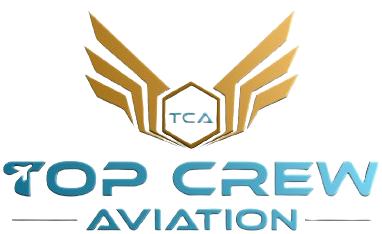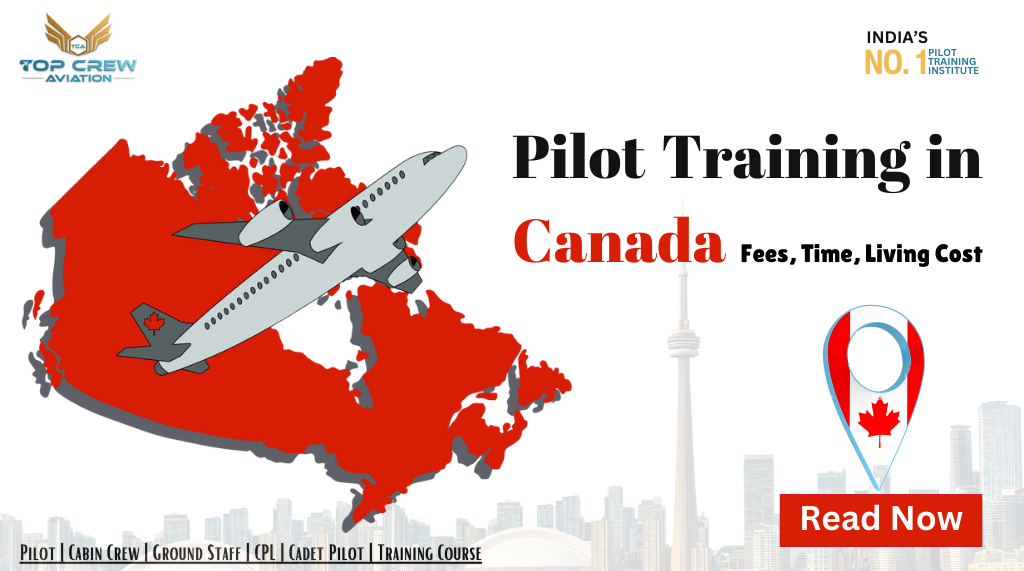we’re going to examine pilot training in Canada, a nation renowned for its excellent flying instruction and stunning scenery. So many options are available for aspiring pilots from all around the world. Canada offers amazing Flight Training programs to students from every corner of the globe, including India.
Canada is a great place for flight training because, like the USA, South Africa, and New Zealand. we have previously discussed in our earlier articles, that it has a rich aviation history, a variety of terrain, and reliable weather. If you want to know how to fly over the untamed Rocky Mountains or through crowded metropolitan areas, several flying schools in Canada may be tailored to your specific needs and objectives.
if you’re ready to take an exciting trip into the aviation industry and want to complete your pilot training there and receive top-notch instruction, contact us!
Table of Contents
- Why Canada is good for Flight Training
- Flying Schools in Canada
- Weather in Canada
- Geography of Canada
- Lifestyle of Student Pilot in Canada
- Cost of Pilot Training in Canada
- How to Become a Pilot from Canada
- Frequently Asked Questions(FAQs)
Why Canada is Good for Flight Training :
Canada is a popular destination for pilots. Many come to the country for flight training. It offers many benefits. Students from all over the world come here. Canada has premier aviation institutions. The climate is varied, providing diverse flying experiences. It has a rich aviation history. Canada is the top choice for Aviators.
Superior Training Standards: Canada is renowned across the world for providing excellent flight instruction. There are many certified flying schools in the country. They have experienced instructors with strong aviation backgrounds. Their commitment to teaching ensures that students receive excellent training in the gift of flight.
Exposure to Varied Air Traffic: Canadian Flight Schools operate on a wide network of regional and international airports. It prepares them for various flying conditions and ensures comprehensive training in aviation skills. Future pilots confidently manoeuvre through intricate airspace systems because of this diversity of expertise. This is an essential skill for commercial pilots.
Abundant Instructor Opportunities: After finishing pilot training and getting licenses, Canadians can become flight instructors. It’s a rewarding career with good pay. Instructors gain more flying experience and enhance their skills while teaching new aviators.
Pilot Training in Canada
Visa Accessibility: Canada simplifies visa procedures for overseas students. This helps those interested in flight training. It eases obtaining student visas, making the process smoother and more accessible for international learners. This makes it easier for prospective pilots to travel to Canada.
Seamless Licence Conversion: The Canadian Commercial Pilot License (CPL) is globally recognized. Pilots from countries like India find converting their licenses hassle-free. This recognition makes the transition process easier, allowing these pilots to work globally. Canadian flight training plays a crucial role in this opportunity.
Optimal Weather Conditions: Because of its diverse range of temperatures, Canada can conduct pilot training all year round. The country’s weather allows for learning important flight operations such as how to do manoeuvres in snowy weather conditions or fly through clear skies which would result in faster skill development and richer training experience.
Canada follows the International Civil Aviation Organization’s (ICAO) guidelines for conducting flight training by international standards. Through this conformity, the conversion of licences is smooth and thus it adds to the prestige of Canada as a leading country in aviation training.
Comprehensive Programs: Many Canadian flight schools provide integrated courses that are in line with the demands of various aviation authorities worldwide, including the Directorate General of Civil Aviation (DGCA) from India. These programs ensure a direct transition to commercial aviation careers giving aspiring pilots a global edge.
Related:-Pilot Training in USA Explained; Fees, Time, Living Cost 2024
Flying Training Schools in Canada :
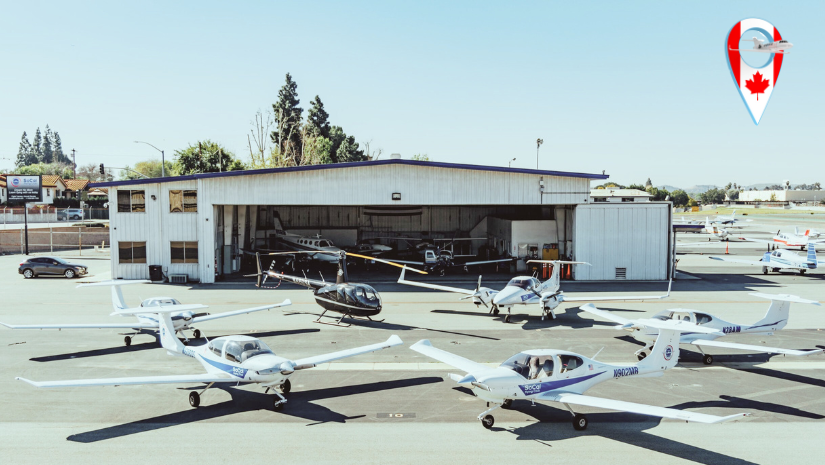
Canada’s aviation sector enjoys a longstanding reputation for quality, and the nation is home to several internationally recognized flight schools. Many of these schools are conveniently located near major international airports or smaller rural airfields, making them ideal training grounds. Canadian flying schools with many aircraft provide excellent pilot training, ensuring students get the best learning experience. Here are some of the well-known flying schools in Canada for Pilot Training –
| Flying School | Location | License & Programs Offered |
| Brampton Flight Centre | Brampton, Ontario | PPL, Professional Pilot Program, Recreational Pilot Program, etc. |
| Pacific Flying Club | Delta, BC | PPL, CPL, Integrated ATPL Program, Recreational Pilot Permit Program, etc. |
| Harv’s Air | Steinbach, MB | PPL, CPL, Multi-Engine Rating Program, etc. |
| Waterloo Wellington Flight Centre | Breslau, Ontario | PPL, CPL, Integrated ATPL Program, FIR Program, etc. |
| Canadian Flight Academy | Pitt Meadows, BC | PPL, CPL, Integrated ATPL Program, Night Rating Program, etc. |
| Coastal Pacific Aviation | Abbotsford, BC | PPL, CPL, Professional Pilot Diploma Program, Airline Pilot Program, etc. |
| Moncton Flight College | Dieppe, NB | PPL, CPL, Integrated ATPL Program, FIR Program, etc. |
| Mitchinson Flight Centre | Saskatoon, SK | PPL, CPL, Commercial Pilot Program, Multi-Engine Rating Program, etc. |
Flying Training In Canada
Indian students who aspire to become airline pilots can receive flying instruction from several flight schools in Canada that are knowledgeable about the DGCA Regulations. The packages for flight training usually include training fees, accommodation, and transportation.
The length of time for flight training in Canada is generally 12-15 months depending on factors such as the number of aircraft in the fleet, weather conditions, and individual ability. In India, it can be as long as 18 months or even more due to weather restrictions and smaller fleet sizes. Therefore, if a quicker duration of training is important, then you should consider flight training in Canada so that you can accelerate the process.
Aviation Colleges are also present in Canada that provide a Diploma or Undergraduate Degree with Pilot Training, this can be a good choice for many who want to be competitive in the Aviation Industry.
Canada has an established General Aviation Industry, and you will be able to have the widest exposure to all categories of Air Traffic, including International, Domestic, Cargo, Charter, Emergency, and so on. This experience will be useful for you in the future when you start working as an Airline Pilot in India and it will help you a lot
If you need assistance in finding the perfect Flying School in South Africa to meet your requirements, Contact Us!
Related:-Pilot Training in New Zealand | Pilot Fees, Time, Living Cost 2024
Flying Training:- Weather in Canada :
Canada’s varied geography results in a diverse range of weather patterns across the country all year round. The four distinct seasons that Canada has are the reasons why there is always something to look forward to in life.
Winter wraps itself around some parts of Canada like the majestic Canadian Rockies and the northern territories with soft snow and clear, cool temperatures. Snowstorms may sometimes hinder flight training by causing icy runways and reduced visibility but they also provide opportunities for pilots to improve their skills in bad weather conditions.
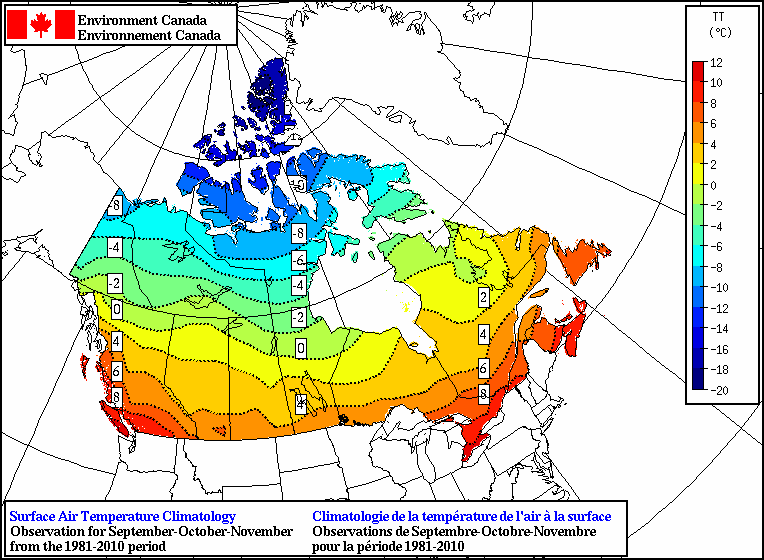
With the onset of spring, the temperature rises slowly leading to the melting of snow and the emergence of new growth. The fog and intermittent rains that come with the season are not an obstacle but rather add some dynamism to flight training near water bodies and green landscapes.
The summer comes as a cosy period with warm temperatures and pilots get an opportunity to explore Canada’s beauty under clear skies. There are sporadic thunderstorms that can be utilized as models for safely navigating turbulence and lightning in central and eastern Canada.
In the fall, nature puts on a colourful show as the temperature starts to dip again. While fog and low clouds might decorate the mornings and evenings, they make a pretty background for flight training among the changing leaves.
Geography of Canada :
The geography of Canada fundamentally affects aviation training because of its huge land area, varied terrains, and variable weather conditions. The large size of the country offers enough space for flight schools and training centres to meet the needs of pilots both domestically and globally who are growing in number.
Aviation training in Canada is beneficial especially because of its geographical diversity which includes everything from rugged mountains to vast prairies and dense forests. The variety of training gives the student pilots a lot of exposure to navigating through different terrains and under various weather conditions and in turn this helps them handle similar conditions when they are flying during their careers.
Moreover, Canada’s northern position on the globe offers some unique advantages for the training of pilots to fly in Arctic conditions those interested in employment in bush flying, aerial surveys, water operations, or medevac operations, this portion of the training is crucial.
The country of Canada is well known for having an advanced aviation infrastructure. Several airports and sections of airspace are set aside for training, giving students access to first-rate teaching and practical experience. Canada’s strict regulatory standards also guarantee that flight training programs are in line with the high safety requirements so you can always expect the best Pilot Training. As a result of this, the pilots are competent and skilful to operate in diverse environments globally.
Lifestyle of Student Pilot in Canada :
Learning to fly in Canada affords students a lifestyle typified by dedication, self-control, and a passion for aviation. Their days frequently begin early as they mix in-class instruction with real-world flight training. Ground school classes, which cover topics including weather, aircraft systems, and aviation rules, may take place in the mornings. In the afternoons, students often participate in flying training, where they practice applying their theoretical knowledge in real-world situations under the guidance of certified flight instructors.
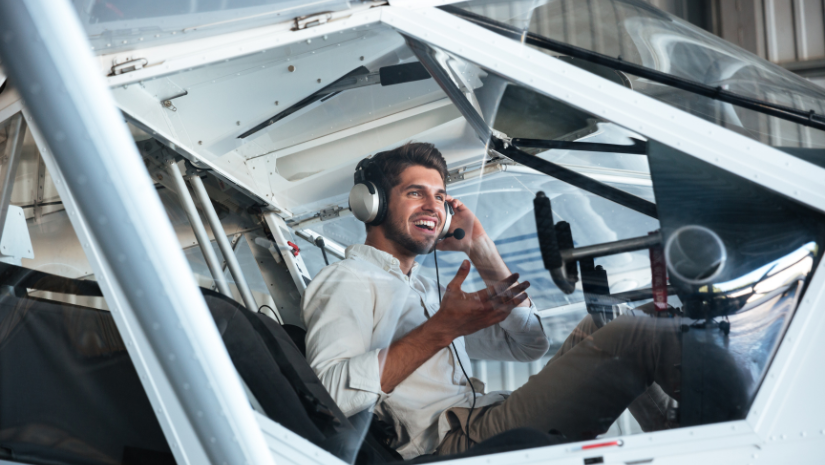
In the short intervals between classes and flights, students concentrate on self-study, reviewing course materials, and also practising flight manoeuvres on simulators. Maintaining physical fitness is vital for Getting a pilot License.
Apart from the academic realm, students dive into aviation culture and do things like visit air shows, aviation clubs, and networking events. They also typically develop strong friendships with other students and instructors who help in creating a supportive community within the flight training environment..
In the course of their training, students may come across problems such as weather delays, technical issues, and tough exams. Nevertheless, they continue to have a strong determination to achieve their dream of being a pilot which is what makes them move on.
Despite the busy schedule, students manage to take pleasure in the art of flight even if it is just for a moment; be it above beautiful scenery or through the excitement of mastering a new manoeuvre. In the end, their way of life during their Flight Training in Canada will centre around their aviation excellence and success that will help them to have a rewarding career in the sky.
Cost of Pilot Training in Canada :
The majority of flight schools in Canada provide training programs. These programs help individuals start from scratch and earn a Transport Canada Commercial Pilot License (CPL). For Indian students in Canada, there are specific programs tailored to fit DGCA regulations. These Pilot programs guide students from a Private Pilot License (PPL) to a Commercial Pilot License (CPL) with an Instrument Rating (IR). Check the Cost of a Pilot License in Canada
| Training | Estimated Cost (USD) |
| Private Pilot License (PPL) | $8,000 – $16,000 |
| Commercial Pilot License (CPL) | $30,000 – $45,000 |
| Instrument Rating (IR) | $5,000 – $15,000 |
| Multi-Engine Rating (ME) | $5,000 – $15,000 |
| Total | $48,000 – $85,000 |
Note that these prices are an approximation based on the current conditions of Flight Training in Canada.
The estimated total cost of Commercial Pilot License Flight Training in Canada is anywhere from CAD 48,000 to CAD 85,000 (Rs 29.2 Lakh to Rs 51.7 Lakh). Costs of Flight Training will vary based on Living Costs, Accommodation Prices, and Additional Costs such as Medical Fees, Exam Fees, Transportation Fees, Visa Fees, etc.
Contact us if you need help locating the ideal Flying School for Pilot Training that satisfies your needs!
How to Become a Pilot From Canada:
Top Crew Aviation, with 16 years in aviation, supports 7500+ students. We simplify flight training from Canada or abroad. Trust our experts to guide you through every step.
Our Aviation Institute offers support from applying to flying schools, visa help, to flying conversions, and lifelong career guidance.
To provide a more thorough breakdown of the services provided by Top Crew Aviation:
Flying School Application Assistance: Top Crew Aviation offers support in the application process for flying schools. This can include assistance in choosing the right school, preparation of application materials, and meeting admission requirements.
Visa process guidance: Top Crew Aviation assists students with visa processes for flight training abroad. They handle applications, documentation, and procedures, simplifying the complex visa journey for aspiring pilots.
Conversion Flying: Top Crew Aviation helps convert Pilot licenses to meet International or Indian standards. This includes training, exams, and certifications as needed by the destination country.
Lifelong Career Guidance: Top Crew Aviation goes beyond offering just training we also provide lifelong career guidance to our students. This involves advice on career paths, job opportunities, skill development, and professional networking in the aviation industry.
We have a vast network of connections with Flying Schools in India, South Africa, and the USA. To have your questions answered and begin your aviation career right now, visit this link!
Related:- Cadet Pilot Program – Course, Eligibility, Recruitment and Selection Process
Frequently Asked Questions(FAQs) :
Question: Why should I choose Canada for Flight Training?
Answer: Pilot training in Canada offers superior standards and diverse air traffic scenarios. Many instructors find ample opportunities. Visa processes are straightforward, and license conversion is seamless. These advantages make Canada the top choice for pilots globally.
Question: Does the weather conditions in Canada impact pilot training?
Answer: The weather conditions found in Canada are of great educational value to student pilots. Students receive training in a variety of weather scenarios, from flying in clear skies to traversing snow-covered areas. This allows for a more varied and expedited learning experience.
Question: What is the cost of Flight Training/Pilot Training in Canada?
Answer: The rough costs for aviation training in Canada depend on the kind of license and additional ratings you want. Usually, the entire cost is between 48,000 and 85,000 CAD which covers private pilot license, commercial pilot license, instrument rating, and multi-engine rating. Other factors include living costs, accommodation, and other miscellaneous expenses which may affect the total cost.
Question: How long on average does it take to finish flight training in Canada?
Answer: In Canada, a typical flight training program takes 12 to 14 months assuming several factors such as the fleet size, weather conditions, and individual aptitude. Unlike India, where due to smaller fleet sizes and weather limitations, training periods may be as long as 18 months, in Canada potentially shorter training periods are available leading to a more rapid learning process for future pilots.
Question: Do aspiring pilots receive any support from Top Crew Aviation?
Answer: Top Crew Aviation is an aviation and flight training industry leader who assists with flight school applications, visa processing, conversion flying, and lifelong career guidance. We aim to make the journey of a new pilot smooth by providing inclusive services that will span from the start to the end of their aviation career.
